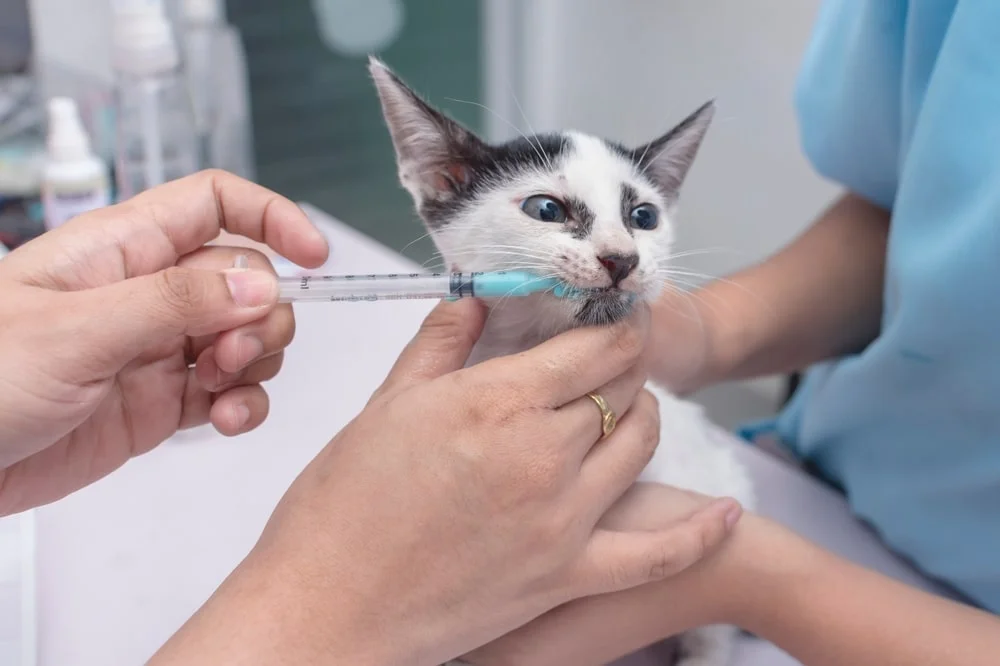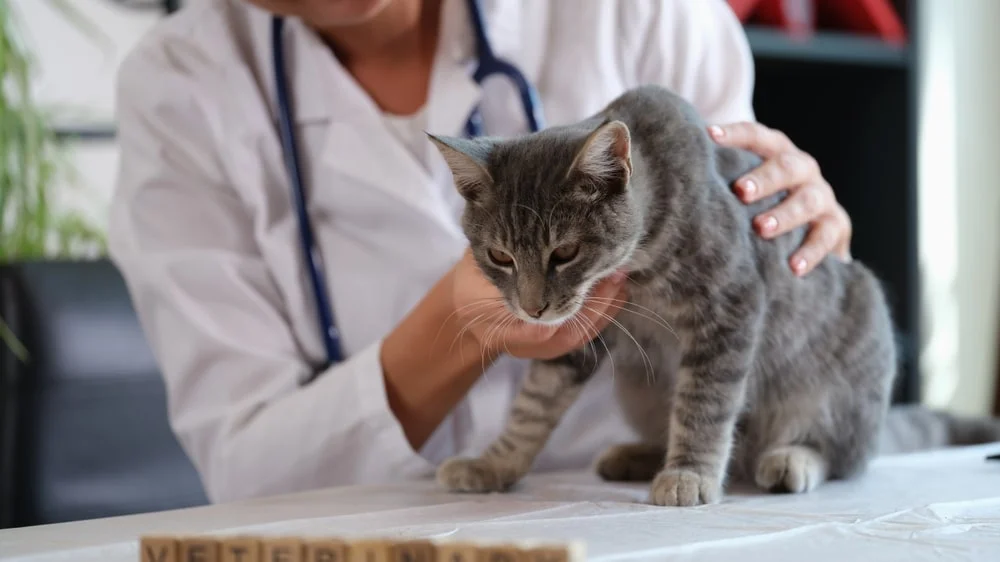PET HEALTH
Both adult cats and kittens are susceptible to internal parasites.1 These nasty worms can cause organ blockages, take essential nutrients from your kitten, and hinder their growth. Since kittens are still growing, they’re at a higher risk of developing complications if they get worms.1
Regular deworming in kittens or deworming cats can cost over $15 per treatment, and diagnosing worms with a fecal test can cost $30 – $130. However, if the intestinal parasites like worms cause an intestinal blockage, surgery to remove them could cost between $800 and $6,000 or more.2
So, what exactly are internal parasites, how can they affect your feline friend, and is there a way to prevent worms? We’ll answer these questions and more.
Worms May Hurt Your Pet and Your Wallet
How Cats Get Worms
There are a few ways cats can catch worms. If they get infected feces or parasite eggs on them, chances are they’ll groom themselves and ingest the parasite. Here are some places they may come into contact with worms:1
- From their mother’s milk
- From sharing a litter box with a cat who has worms
- From padding through an infected area, like a lawn
- From hunting and catching an infected rodent or other small creature
- From dogs who are carrying worms
- From fleas carrying worms
Types of Worms in Cats and Their Symptoms
While there are many kinds of worms, cats are particularly susceptible to six types. The worms spread through eggs and infected feces. Here are the dangerous ways each type of worm could affect your cat:1
- Roundworms: These can cause anemia, pneumonia, and intestinal blockages.
- Tapeworms: These can cause intestinal inflammation and blockages.
- Whipworms: These can cause anemia and dehydration.3
- Heartworms: These can cause heart and respiratory damage and blockages.4
- Hookworms: These can cause skin lesions and anemia.
- Lungworms: These can cause pneumonia.
Other symptoms of worms in cats
Your cat’s symptoms may vary depending on how bad the infestation is.1 A late-stage worm infestation can have life-threatening symptoms, while newly hatched worms may only cause minor, if any, symptoms. Nevertheless, here are some other signs of worms in cats:5
- Vomiting and diarrhea
- Visible worms in vomit or poop
- Distension
- Coughing
- Dehydration
- Lack of appetite and weight loss
- Dull coat
- Shock
Why Deworming Kittens Is Important
Worms can pose a higher risk to kittens, since the parasites can suck the nutrients needed for kittens to grow, which could stunt their development. However, you can’t put kittens on parasite prevention.5 This is why a deworming schedule is so important.
Kittens should be dewormed once they’re weaned off of their mother’s milk, usually around 6 weeks, then every 4 weeks until they turn 6 months old. At this point, you’ll want to put them on a parasite prevention program.6
Some vaccines, like the FVRCP vaccine, have a deworming component, so you may be able to double up. Ask your veterinarian about your options.
Diagnosing Worms in Cats
There are a few ways to tell if your cat has internal parasites. The most obvious is spotting worms in their vomit, poop, or around their anus. However, if they show other symptoms, your veterinarian can run a few diagnostic tests. Fecal float tests can help identify most internal worms. However, the only way to diagnose heartworms is through blood work.7
Fecal exams and blood work during your cat’s regular checkups can help you identify worms early, protecting your cat from complications down the line.
How To Deworm a Cat
If your cat does have worms, your vet will prescribe a dewormer. Work with your vet to get your cat an oral medication or shots to kill internal parasites. They’ll generally recommend a series of doses, since the dewormers only kill adult worms and larvae, not the eggs. If eggs hatch after a deworming treatment, these larvae can still thrive.8
If the worm infestation is causing severe symptoms, your vet may also treat the conditions they’re causing.
Can you deworm a cat at home?
While there’s a wide variety of home remedies or over-the-counter deworming medicines, vets don’t recommend them due to their ineffectiveness.9 Common at-home recommendations such as apple cider vinegar and turmeric aren’t vet-approved. Veterinarians recommend against deworming your cat yourself at home. Instead, work with your vet for safe and effective deworming, and practice preventative measures at home.9
Preventing Worms in Cats
Prevention is the most effective way to keep your cat free from parasites. Work with your vet to start your cat on a regular parasite prevention medication. If you have an outdoor cat or multiple indoor cats sharing a litter box, you may want to consider regular deworming treatments. You should also clean their litter box daily to minimize contact with potentially infected poop.
Does Pet Insurance Cover Deworming?
One of the costs of owning a cat is treating health concerns like worms. MetLife Pet Insurance offers an optional wellness policy that covers parasite prevention programs, deworming costs, and more. It can even cover flea treatment.9 This extra level of protection makes pet insurance worth it.
Our cat insurance helped Susie, a domestic long-haired kitty, with her lungworm diagnosis. Her diagnostics alone cost over $150. MetLife Pet Insurance helped cover the majority of the vet bill and even helped her family to cover the deworming treatments as well.10 Internal parasites can be scary, but cat insurance can help to prevent and treat them. Give your kitty the best care you can by getting started with a free quote today.
Help Keep Your Cat Healthy and Happy
Dr. Hunter Finn has been paid by MetLife to discuss the importance of choosing pet insurance. He is an integrative veterinary expert first, and social media star second. He owns Pet Method in McKinney, Texas, where he cares for pets while prioritizing their emotional well-being. When he’s not at his clinic, he’s starring in viral videos on TikTok (2 million followers) and Instagram (500K followers) — where he’s been known to snuggle puppies and conquer the latest dance trends.




